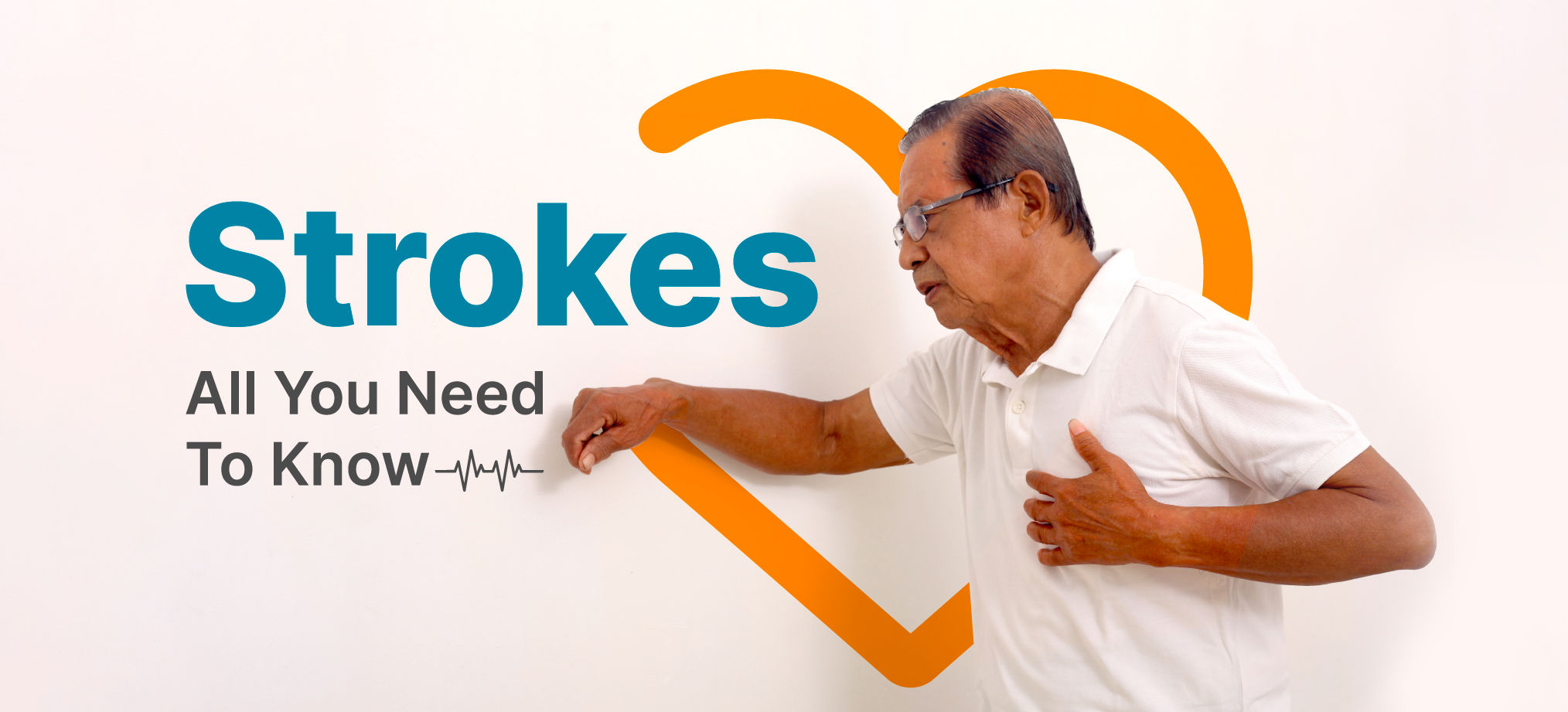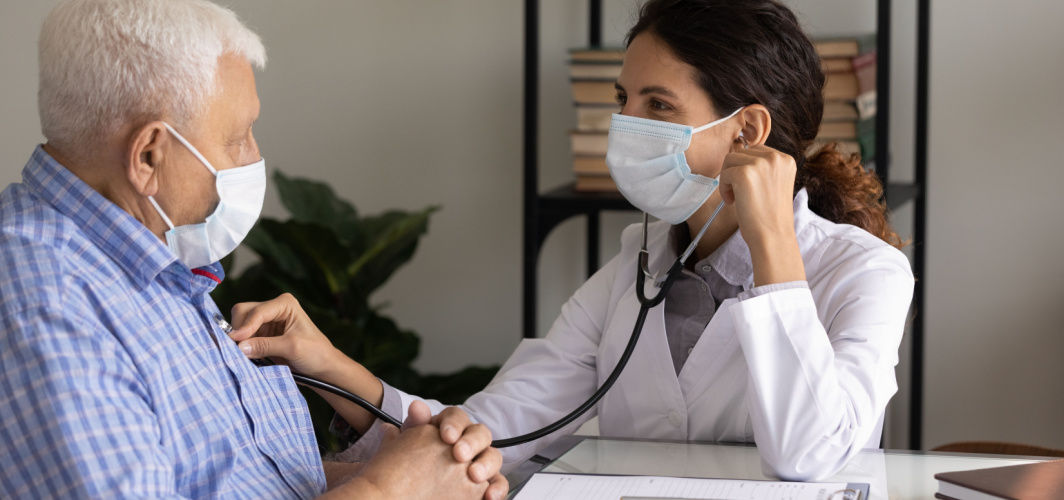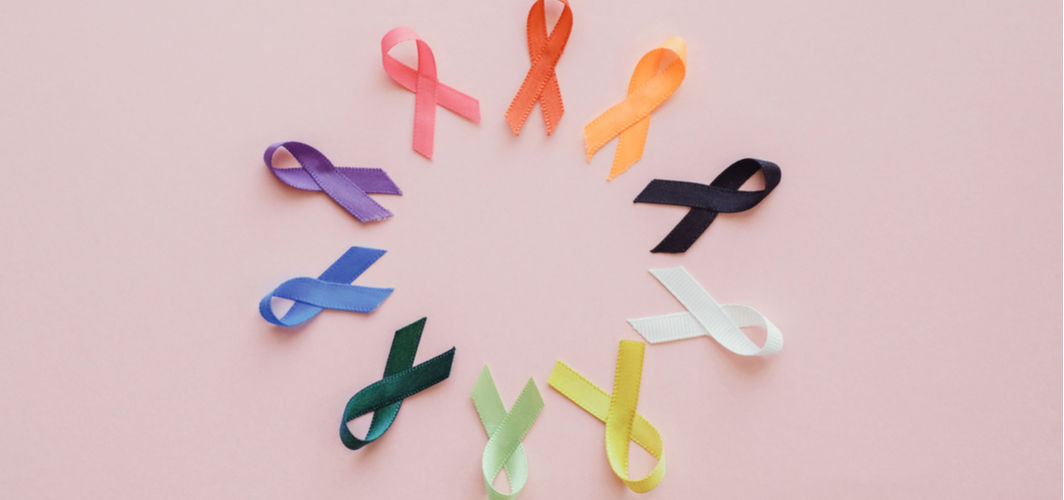General Health
What Happens During A Stroke?
4 min read
By Apollo 24|7, Published on - 28 November 2022, Updated on - 24 January 2023
Share this article
0
0 like

When a blood vessel in the brain bursts or the blood supply to the brain is suddenly cut off, it leads to a stroke. In such an episode, the individual fails to communicate, has blindness in one eye, and is unable to maintain balance. Consequently, prompt action is required to prevent permanent brain injury and re-establish blood flow to the brain.
In this article, we will discuss stroke and its deadly impact on the brain, as well as some risk factors associated with it.
Impact of Stroke In The Brain
The brain is the central processing unit (CPU) of the body, responsible for a wide variety of functions including, but not limited to, transmitting signals to other organs, storing memories, processing thoughts, and allowing us to communicate in various languages. Similar to how a computer's central processing unit (CPU) requires power, our brain needs oxygen, which is carried to it through the blood vessels.
Let’s say the CPU's connection wire is cut off; the computer won't function, right? Likewise, if anything were to interrupt blood circulation, the brain would quickly become oxygen-starved, leading to a state of chaos known as a stroke.
Different Types of Stroke
The root cause of stroke can vary basis the underlying general health condition of the individual. While broadly stroke can be grouped under three categories, each type has its own severity and complications.
1. Ischemic Stroke
Ischemic stroke happens when plaque/clot lodges in a blood vessel of the brain and prevent blood flow. It typically affects the carotid artery in the neck.
Medical Complications
Ischemic strokes are linked to a higher risk of health problems like severe hypertension, pneumonia, cerebral infarction (which kills parts of the brain), and some kind of disability.
2. Hemorrhagic Stroke
When a blood artery in the brain bursts, it causes a hemorrhagic stroke. Both ICH (intracerebral hemorrhage) and SAH (subarachnoid hemorrhage) are subtypes of hemorrhagic stroke (SAH). Both ICH and SAH cause bleeding, but ICH causes bleeding into the brain parenchyma, which contains collagen protein. On the other hand, SAH causes bleeding into the subarachnoid space, which contains the cerebrospinal fluid (CSF) and major blood vessels.
Medical Complications
Intracerebral hemorrhage is characterised by damage or trauma to the brain parenchyma, which typically results in a decline in mental capacity (cognitive ability) or even death. Furthermore, with subarachnoid hemorrhage, the pressure on the brain is exacerbated because blood collects in the space between the brain and the skull. Due to this, seizures and brain swelling are also possible outcomes of this type of stroke.
3. Transient Ischemic Attack (TIA)
A transient ischemic attack (TIA) is an episode of stroke-like symptoms that lasts less than 24 hours. A transient ischemic attack (TIA) often only lasts a few minutes and does not lead to any long-term consequences. A transient ischemic attack (also known as a "ministroke") can serve as a warning.
Signs And Symptoms Of Stroke
Being aware of the signs of stroke can help you help someone you care about. Learning and spreading the F.A.S.T. warning signs of stroke aids in immediate recognition of the condition. Prompt action can save one life as every second matters!
- F.A.S.T. (Face drooping, arm weakness, speech difficulty, and time to call paramedics)
- Numbness in the face
- Sudden confusion
- Trouble walking
- Severe headache
In the event that you witness someone having a stroke, you need to respond quickly to prevent permanent brain damage.
- Get help from the paramedics; they can deal with it more effectively than you can.
- Encourage the patient to lie down so that the blood can circulate more freely.
- In the event of cardiac arrest, initiate cardiopulmonary resuscitation (CPR).
- Do not give the patient any medications, food, or drink to prevent choking.
Predisposing Risk Factors Associated With Stroke
Apart from debilitating medical conditions like high cholesterol, heart disease, and obstructive sleep disorders, other factors that increase the chances of stroke are
- Obesity
- Inactivity and sedentary lifestyle
- Alcohol indulgence
- Older age group (above 55 years)
- Diabetes
- Smoking
Final Note
The chances of avoiding a stroke can be lowered by raising awareness, managing pre-existing medical issues, and adopting a healthy lifestyle. Taking preventative measures is way more practical than managing the disaster,
- Get at least 30 minutes of exercise daily.
- Fill your plate with healthy foods like fresh produce, whole grains, and lean meats.
- Avoid using tobacco products and limit your alcohol intake.
- Work with your doctors to take care of your diabetes, high blood pressure, and high cholesterol to get your numbers down to healthy levels.
Although these measures won't eliminate your risk entirely, they will significantly lessen it.
Consult a neurologist when in doubt.
Medically Reviewed by Dr. Dhanunjay Reddy B
General Health
Leave Comment
Recommended for you

General Health
5 Infectious Diseases That Require A Doctor's Attention
Infectious diseases are often caused by viruses, bacteria, and fungi. These illnesses can be easily treated with good medication and the supervision of a professional general physician doctor.

General Health
Morbid Obesity: What You Need To Know
In a country like India, where a fat person is considered healthy, it is likely to see more cases of morbid obesity. It is a condition where the person is 30-40 kg heavier than their ideal weight. As much as diet is believed to be the primary factor, the major causes are genetic, hormonal, and physical. Hence, changing your lifestyle and maintaining the ideal weight for a healthy life is essential.

General Health
7 Cancer-Causing Substances That You Should Distance Yourself From
Cancer is the leading cause of death across the globe. This article addresses such carcinogens in the environment that most people are unaware of.
Subscribe
Sign up for our free Health Library Daily Newsletter
Get doctor-approved health tips, news, and more.
Visual Stories

Science-backed Home Remedies for Burns and Blisters
Tap to continue exploring
Recommended for you

General Health
5 Infectious Diseases That Require A Doctor's Attention
Infectious diseases are often caused by viruses, bacteria, and fungi. These illnesses can be easily treated with good medication and the supervision of a professional general physician doctor.

General Health
Morbid Obesity: What You Need To Know
In a country like India, where a fat person is considered healthy, it is likely to see more cases of morbid obesity. It is a condition where the person is 30-40 kg heavier than their ideal weight. As much as diet is believed to be the primary factor, the major causes are genetic, hormonal, and physical. Hence, changing your lifestyle and maintaining the ideal weight for a healthy life is essential.

General Health
7 Cancer-Causing Substances That You Should Distance Yourself From
Cancer is the leading cause of death across the globe. This article addresses such carcinogens in the environment that most people are unaware of.